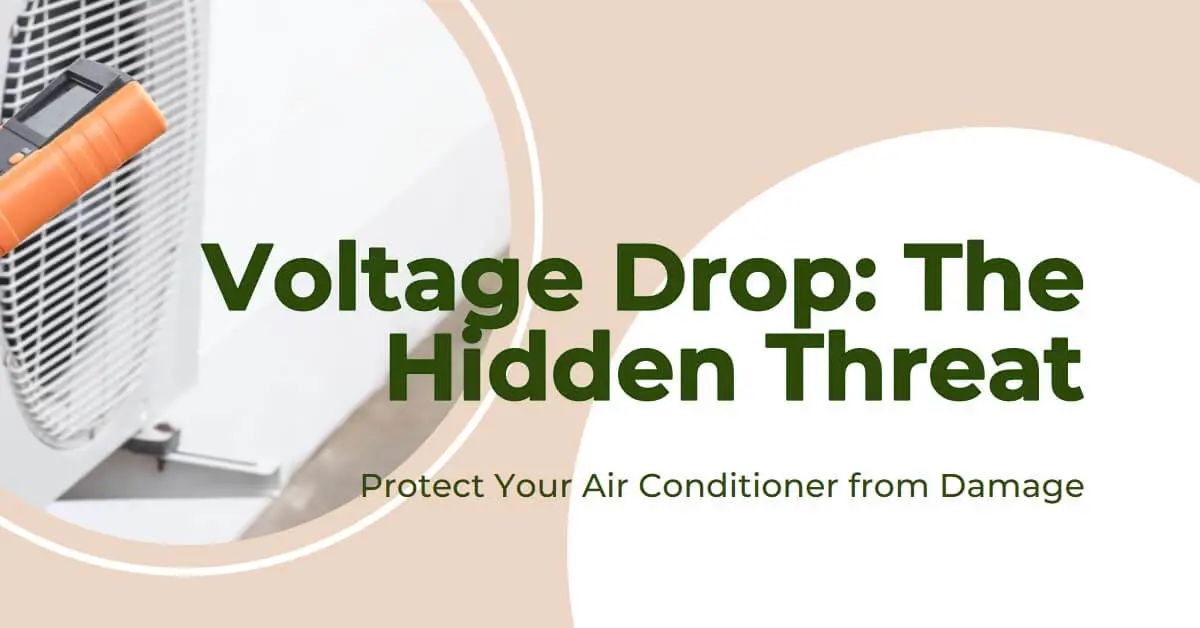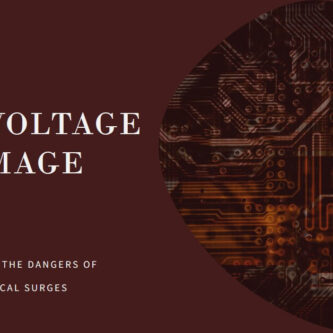Image: “Article Feature Image” by Bing is licensed under CC BY-NC-SA 4.0. Source: Bing Graphic Art. License: CC BY-NC-SA 4.0.
As an experienced electrical engineer with over 13 years of expertise, I understand the importance of maintaining the optimal performance and longevity of electrical appliances. I will share it with you in this article!
So, can voltage drop damage the air conditioner? let’s get straight to the point. The answer is yes, voltage drop can indeed damage air conditioners.
In this article, we will delve into the effects of voltage drop on these cooling systems and provide valuable insights on how it can potentially harm your air conditioner.
By gaining a deeper understanding of this phenomenon, you will be better equipped to take preventive measures and ensure your air conditioner remains in top-notch condition.
So, let’s explore the impact of voltage drop on air conditioners and how you can safeguard your investment.
Understanding Voltage Drop
Voltage drop occurs due to resistance in electrical conductors, typically caused by factors like wire length, gauge, and connection quality.
When voltage drops occur, the energy supplied to electrical devices decreases, affecting their performance and reliability.
This phenomenon is particularly important to understand as it can have significant consequences for air conditioners.
Voltage Drop and Air Conditioners
Air conditioners rely on a steady and adequate supply of voltage to function optimally. Any deviation from the recommended voltage range can negatively impact their performance.
Voltage drop can lead to several issues, including reduced cooling or heating capacity, decreased energy efficiency, and even potential damage to critical components and the motor of the compressor as I will discuss later in this article.
Factors Affecting Voltage Drop
Several factors contribute to voltage drop in air conditioning systems. The length and gauge of electrical wiring play a crucial role, as longer wires or wires with smaller gauges offer higher resistance, resulting in greater voltage drops.
Additionally, the electrical load and power requirements of the air conditioner can influence voltage drop, along with the condition and quality of electrical connections within the system.
Recognizing Signs of Voltage Drop
Being able to recognize the signs of voltage drop in an air conditioner is important for timely intervention.
Inconsistent cooling or heating performance, frequent circuit breaker tripping, and unusual noises or vibrations are common indicators that voltage drop may be affecting the system. Promptly addressing these signs can help prevent further damage.
Potential Damages Caused by Voltage Drop
Voltage drop can inflict various damages on air conditioners if left unaddressed. The compressor and motor, key components responsible for cooling and circulation, are particularly vulnerable.
Voltage drop can lead to increased heat generation, reduced efficiency, and ultimately, premature failure.
Moreover, voltage drop can disrupt the overall functioning of the system, resulting in component failures and costly repairs.
Voltage drop can cause the motor or compressor of an air conditioner to draw more current than intended.
This increased current can lead to excessive heat buildup, potentially resulting in overheating and eventual burnout of the motor or compressor.
This can significantly damage the air conditioner and may require expensive repairs or replacement.
For in-depthvoltage drop can cause the motor or compressor of an air conditioner to draw more current than intended. This increased current can lead to excessive heat buildup, potentially resulting in overheating and eventual burnout of the motor or compressor. T information read my article: Unveiling the Mystery: What Causes High Current Draw in Electric Motors?
Preventing Voltage Drop in Air Conditioners
Fortunately, several measures can be taken to prevent or mitigate voltage drop in air conditioning systems. First and foremost, proper electrical installation and wiring are crucial.
Using appropriately sized wires and ensuring secure and corrosion-free connections can minimize resistance and voltage drop.
Additionally, voltage stabilization devices, such as voltage regulators or surge protectors, can help maintain a stable power supply to the air conditioner.
Regular maintenance and inspections are also essential to identify and rectify any potential issues before they cause significant damage.
Conclusion
Voltage drop can have detrimental effects on air conditioners, compromising their performance and lifespan.
It is crucial to address voltage drop issues promptly to prevent damage and ensure optimal functioning.
By understanding the causes, recognizing the signs, and implementing preventive measures, homeowners can protect their air conditioning systems and enjoy comfortable indoor environments year-round.
you work With Electricity! Don’t leave empty-handed!
Looking to stay ahead of the game in the world of electrical engineering? Subscribe to my YouTube channel and gain access to exclusive content you won’t find anywhere else!
The staff I recommend (Amazon Affiliate Links to products I believe are high quality):
- Economy 120 Volt/60Hz AC Power Source – Step-Down Voltage & Frequency Converters 1800W
- UNI-T Digital Multimeter Tester UT139C
- 50-Amp Extension Cord for RV “100ft”
- Voltage Stabilizer 110/220v
- Hair Dryer “best selling“
- TOSHIBA EM131A5C-BS Countertop Microwave Ovens
Disclaimer: This contains affiliate links to Amazon products. I may earn a commission for purchases made through these links.


